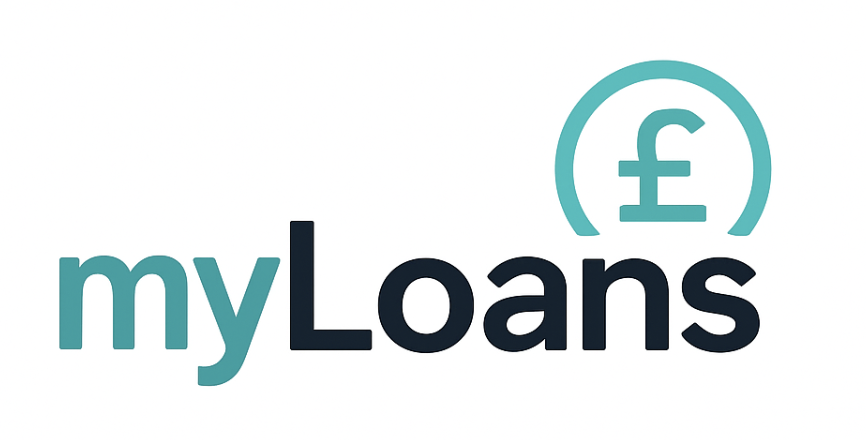Term Loans and Short-Term Lending
When you need to borrow money, choosing the right loan can make all the difference. For many borrowers, a term loan provides structure and predictability, while short-term lending options such as a 1-month loan offer quick, temporary financial relief.
This guide explains how term borrowing works in the UK, what types of loans are available, and the pros and cons of different options.
What Is a Term Loan?
A term loan is a type of borrowing where you agree to repay a fixed amount of money over a set period. The “term” can range from one month to several years, depending on the lender and the purpose of the loan.
Key features include:
-
Borrowing a lump sum.
-
Fixed repayment schedule.
-
Interest charged on the outstanding balance.
For example, banks like Barclays and Lloyds Bank offer personal term loans with repayment periods from one to seven years.
How Term Lending Works
When you take out a term lending product, you’ll agree on:
-
Loan amount – how much you borrow.
-
Interest rate – fixed or variable.
-
Repayment term – usually monthly instalments.
-
Fees – such as arrangement or early repayment charges.
Repayments are made regularly until the loan is fully repaid. A longer term usually means smaller monthly payments but higher total interest.
You can compare different repayment options using the MoneySuperMarket Loan Calculator.
What Is a 1-Month Loan?
A 1-month loan is a short-term loan designed to be repaid within 30 days. These loans are typically offered by direct lenders online and are aimed at people who need urgent cash.
They are sometimes called payday loans, though modern regulations in the UK cap interest and fees. Lenders must be authorised by the Financial Conduct Authority (FCA).
When Is a 1-Month Loan Used?
-
Covering emergency bills.
-
Unexpected expenses (e.g., car repairs, home repairs).
-
Short-term cash flow gaps.
However, due to high interest rates, these loans should be a last resort.
Short-Term vs Long-Term Borrowing
Different loan types suit different financial needs:
| Loan Type | Typical Term | Best For | Pros | Cons |
|---|---|---|---|---|
| 1-Month Loan | 30 days | Emergencies | Fast payout, simple process | High APR, short repayment window |
| Short-Term Loan | 3–12 months | Temporary needs | Predictable repayments | More expensive than long-term |
| Long-Term Loan | 1–7 years | Larger purchases | Lower monthly cost | More interest over time |
Pros of Term Borrowing
-
Predictability – clear repayment schedule.
-
Flexibility – terms can be short (1 month) or long (several years).
-
Accessibility – wide range of lenders and products.
Cons of Term Loans
-
Early repayment fees – some lenders charge if you repay early.
-
Interest accumulation – longer terms mean higher overall costs.
-
Credit checks – poor credit may limit options.
Who Offers Term Loans in the UK?
-
High street banks – Barclays, Lloyds, HSBC.
-
Online lenders – for fast or short-term products.
-
Credit unions – community-focused lending with fair rates.
Find your nearest credit union through the ABCUL website.
Alternatives to a 1-Month Loan
If you’re considering a 1-month loan, check if other options might be cheaper:
-
0% purchase credit cards – interest-free borrowing for set periods (MoneySavingExpert guide).
-
Budgeting advances – available if you’re on Universal Credit (GOV.UK guide).
-
Overdrafts – controlled borrowing through your bank.
FAQs
What is a TL loan?
It refers to a term loan (TL) — a loan repaid over a set time period.
Can I get a term loan with bad credit?
Yes, but expect higher interest rates. Some lenders specialise in poor-credit loans.
Are 1-month loans safe?
They can be, provided the lender is FCA-authorised. Always check on the FCA Register.
What’s the difference between term lending and revolving credit?
With term lending, you borrow a fixed sum and repay it over time. Revolving credit (like a credit card) allows repeated borrowing up to a limit.
Conclusion
Term loans remain one of the most common forms of borrowing in the UK, offering structured repayments and predictable costs. For emergencies, a 1-month loan may be an option, but it’s important to weigh up the high costs against alternatives like credit unions or budgeting advances.
By comparing lenders, checking FCA authorisation, and understanding repayment terms, you can make an informed choice about whether term borrowing is the right solution for your financial situation.
Alternatives to Payday Loans | Safer Borrowing Options
Payday loans are often marketed as a quick fix for cash emergencies, but they are not the only option available. Whether you’re facing an unexpected bill, car repair, or temporary cash shortfall, there are several alternatives to payday loans that may offer lower...
Payday Loans with Bad Credit | Direct Lender Options
If you’ve been refused credit elsewhere and are wondering whether you can still get a payday loan with bad credit, you’re not alone. Thousands of people in the UK search every month for options like “payday loans with bad credit” or “direct lender payday loans”. While...
Personal Loan Debt Consolidation UK – Is It Right for You?
Juggling multiple credit cards, overdrafts, or loans can be stressful and expensive. A debt consolidation loan allows you to combine everything into a single monthly repayment, often at a lower interest rate. In 2025, UK lenders from high street banks to online...
Emergency Loans UK – How to Borrow Fast in 2025
When an urgent expense hits — like car repairs, medical bills, or a broken boiler — quick access to funds can be essential. In 2025, emergency loans in the UK provide a way to borrow fast, with some lenders offering same-day decisions and payouts. This guide explains...
Top 10 Personal Loan Providers UK 2025 – Rates, Features & Eligibility
The UK personal loan market in 2025 offers more choice than ever, with banks, supermarkets, online lenders, and credit unions all competing for borrowers. The best deal for you depends on your credit score, loan size, and repayment term — but comparing providers side...
Best Debt Consolidation Loans UK 2025 | Top Options
Managing multiple debts can feel overwhelming, especially with credit cards, overdrafts, and personal loans all charging different interest rates. A debt consolidation loan can simplify your finances by rolling everything into one fixed monthly repayment — often at a...
Best Bad Credit Loans UK 2025 – Top Lenders Compared
Having a poor credit score, CCJs, or past defaults doesn’t mean borrowing is out of reach. In 2025, several UK lenders specialise in products designed for people with bad credit — offering smaller loans, flexible repayment terms, and eligibility checks that won’t harm...
Home Repair Loans UK – How to Cover Unexpected Costs in 2025
A leaking roof, broken boiler, or urgent plumbing issue can quickly turn into an expensive problem — often when savings aren’t available. In 2025, home repair loans in the UK provide a way to spread the cost of essential fixes into manageable monthly repayments. This...
Green Energy Loans UK – How to Finance Eco-Friendly Home Improvements in 2025
Eco-friendly upgrades such as solar panels, insulation, heat pumps, and EV chargers can cut energy bills and boost property value — but they require a significant upfront investment. In 2025, green energy loans in the UK provide a way to spread the cost of sustainable...
Moving House Loans UK – How to Cover Relocation Costs in 2025
From deposits and removal vans to solicitor fees and new furniture, moving house in the UK can quickly add up to thousands of pounds. Not everyone has savings set aside to cover these costs upfront. In 2025, moving house loans in the UK provide a way to spread...
Education Loans UK – How to Fund Studies and Professional Courses in 2025
Not all education in the UK is covered by government student finance. Postgraduate degrees, professional qualifications, and private training often require self-funding — with tuition fees and course costs running into thousands of pounds. In 2025, education loans in...
Holiday Loans UK – How to Spread the Cost of Travel in 2025
Holidays can be some of the most rewarding experiences of the year, but they often come with a price tag that’s hard to cover upfront. From flights and hotels to all-inclusive packages and once-in-a-lifetime trips, the costs can add up quickly. In 2025, holiday loans...
Best Personal Loans UK 2025 – Top Lenders Compared
The UK personal loan market in 2025 is more competitive than ever, with high street banks, supermarkets, online lenders, and credit unions all offering products to suit different needs. Choosing the right provider can save you hundreds in interest and ensure...
Medical Loans UK – How to Finance Healthcare Costs in 2025
While the NHS covers most essential treatment, waiting lists, private care, and specialist procedures mean many people face out-of-pocket medical expenses. From dental work and fertility treatment to cosmetic surgery and urgent private healthcare, costs can run into...
Car Loans UK – Personal Loan vs Hire Purchase vs PCP in 2025
Buying a car in 2025 usually means more than just choosing the right vehicle — it also means deciding how to pay for it. In the UK, the three main options are a personal loan, hire purchase (HP), or personal contract purchase (PCP). Each has its own advantages,...
















